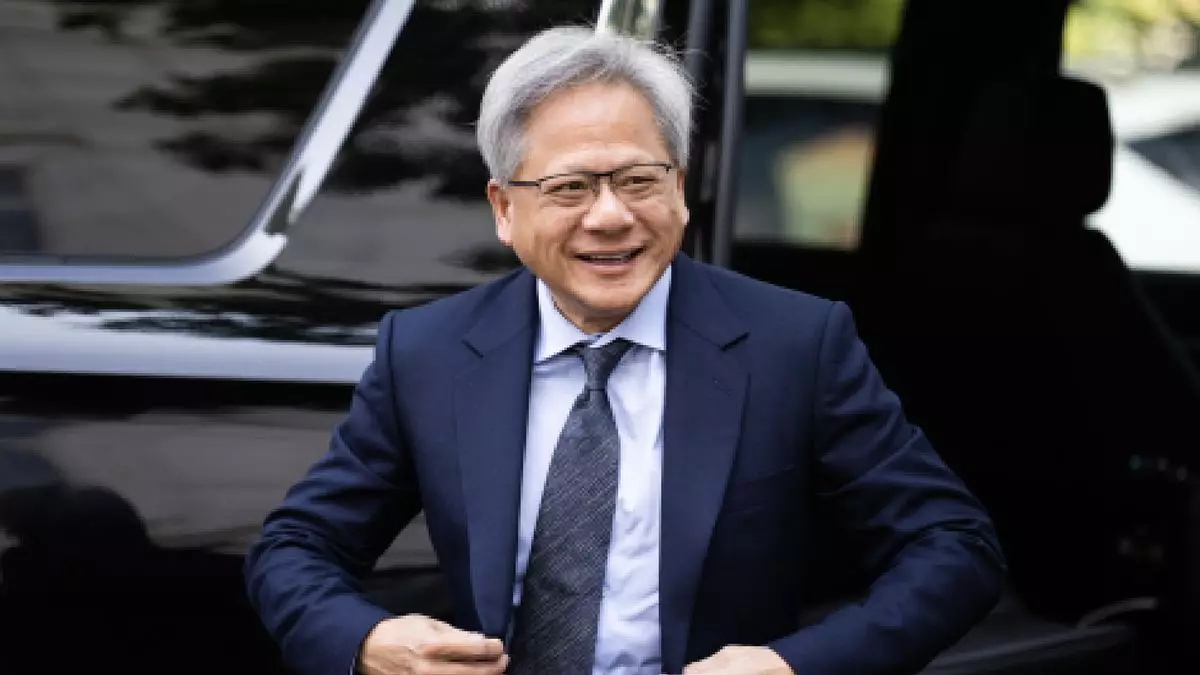The life journey of Jensen Huang, the CEO and co-founder of Nvidia, is not just a story of technological triumph; it’s also a narrative punctuated by unexpected pursuits and youthful aspirations. Before he became the architect of a tech giant, Huang was recognized for his talent in a sport that, while still popular, does not quite share the limelight of the tech industry. The anecdote in question highlights his early foray into the world of table tennis, or as it is colloquially known, “ping pong.” A letter from Lou Bochenski, owner of the Paddle Palace table tennis club, to *Sports Illustrated* positioned Huang as a promising junior player, emphasizing his dedication and relentless pursuit of excellence.
Early Recognition and Hard Work
Huang’s initial recognition by Bochenski serves as a testament to the impact of mentorship and belief in potential. Bochenski’s letter lauded Huang’s work ethic, noting that he earned his way to tournaments by scrubbing floors at Paddle Palace. This insight into Huang’s early life reveals a pattern that would later define his professional ethos: a willingness to work hard and pursue one’s passions with vigor. At the young age of 14, Huang was not merely playing for fun; he was deeply invested in realizing his potential, illustrating an early understanding of the sacrifices required to achieve success.
As many players relish in their natural talent, Huang was differentiated by his ambition and discipline—two qualities that would not only serve him in sports but would prove to be invaluable in his later business endeavors. It’s intriguing to ponder the “what-ifs” of Huang’s life had he chosen to stick with table tennis. Would he have become a champion of the sport, or would he have still found a way to channel that ambition into the technology sector? This speculation invites reflection on how paths diverge based on choices made in youth.
Years after his table tennis aspirations, Huang’s life took a dramatic turn. With a degree in electrical engineering from Oregon State University and an M.S. from Stanford, he took the tech world by storm, co-founding Nvidia in 1993. The shift from ambitious table tennis player to influential leader in the tech industry may seem stark. Still, the underlying characteristics of perseverance and hunger for excellence remained consistent throughout Huang’s life.
Today, Nvidia stands as a powerhouse in artificial intelligence and graphics processing, reshaping industries such as gaming, autonomous vehicles, and deep learning. What’s most fascinating is how these developments tie back to the creativity and systemic thinking that may have blossomed during his formative years in sports. Just as a player must anticipate the opponent’s next move, Huang has continually demonstrated a remarkable ability to forecast trends within the tech landscape, positioning Nvidia at the forefront of innovation.
The anecdote about Huang’s early ambitions sheds light on the nature of passion—whether for sport or technology. Tae Kim’s book, *The Nvidia Way: Jensen Huang and the Making of a Tech Giant*, delves into these underlying principles by presenting Huang’s philosophies on business, driven by hands-on experiences, and a no-nonsense attitude about hard work. Particularly amusing yet enlightening is Huang’s playful boasting about the various menial jobs he undertook, illustrating that every success story is backed by a series of mundane tasks.
The disparity between a dream of being a table tennis champion and leading a tech juggernaut may appear pronounced. Still, it reflects the universal truth that the seeds of ambition require nurturing in various forms. Huang’s ability to adapt his fervent desire for success—whether wielding a paddle or designing cutting-edge chips—is a reminder of the transferable skills we acquire through seemingly unrelated experiences.
Reflections on Ambition and Potential
As we continue to observe Huang’s journey in the tech industry, one cannot help but reflect on the potential ‘what-ifs’ that his life presents. Would he have preferred to rally as a table tennis champion? Undoubtedly, he would have excelled given his early dedication. However, as Nvidia continues to redefine our understanding of artificial intelligence and graphics technology, it is hard to argue that Huang has made the right choice in his pursuits—realizing a multi-trillion dollar vision that positions him as a leader of a future where technology and human interaction are inextricably linked.
Jensen Huang’s early aspirations in table tennis, as highlighted by the anecdote from Lou Bochenski, serve as a poignant reminder that success often emerges from unexpected beginnings. Whether he would exchange his position in tech for a career as a sports champion is uncertain, yet it emphasizes that our paths are often winding and the experiences we gather—both on and off the ping pong table—shape our destiny.


Leave a Reply